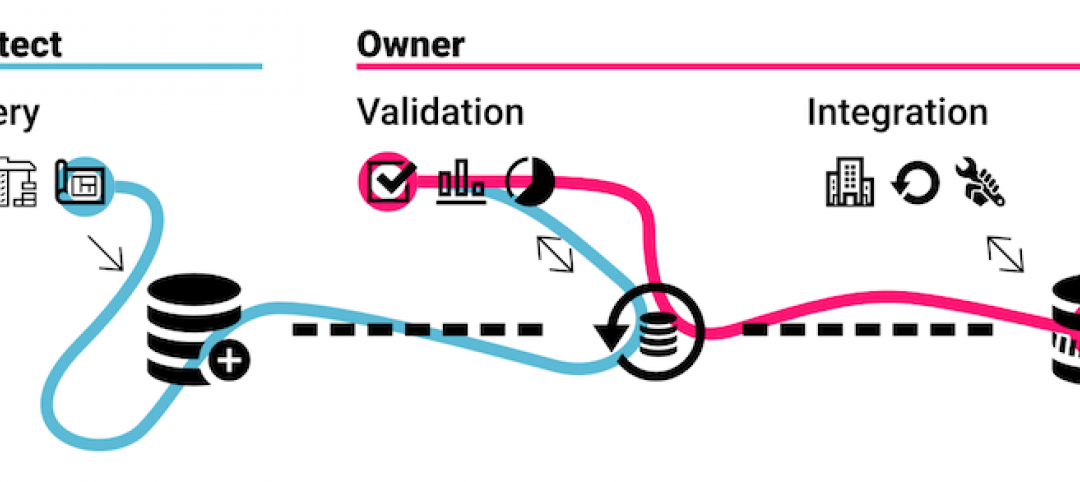
The American Institute of Architects and the AIA California Council have released the results of “Integrated Project Delivery: Case Studies,” a collection of six studies that showcases the process changes and efficiencies of completed building projects that utilized and implemented IPD.
IPD is a construction project model in which owners, design professionals, and general contractors or construction managers jointly share a project's risk and reward. The IPD projects described in the AIA study are the Autodesk AEC Solutions Division Headquarters, Waltham, Mass.; Sutter Health Fairfield (Calif.) Medical Office Building; Cardinal Glennon Children's Hospital, St. Louis; St. Clare Health Center, Fenton, Mo.; Encircle Health Ambulatory Care Center, Appleton, Wis.; and Walter Cronkite School of Journalism, at Arizona State University, Phoenix.
In each case, AIA researcher Jonathan Cohen, FAIA, collected data to measure the completed project against the stated goals of the project team. Through interviews with project participants Cohen and his team also attempted to tell the story of how each project was conceived and carried out.
“Based on these initial reports, IPD is proving to be a solution that frees parties from the processes that often weigh a project down,” Cohen said. “It allows for creativity and innovation in the way stakeholders approach a project—avoiding a 'one size fits all' formula and instead, finding solutions unique to the specific building issues.”
Cohen visited all of the case study projects and interviewed Building Team participants, including one or more representatives of the owner, the architect, and the general contractor or construction manager, and in most cases, the major engineering consultants, specialty subcontractors, building users, and other stakeholders.
Cohen's report includes sections with project detail on early involvement of key participants, shared risk and reward, multi-party contracts, collaborative decision making and control, liability waivers among key participants, and jointly developed and validated targets for all six of the case studies.
Lessons learned and a narrative of each project are detailed in the case studies as well, highlighting obstacles overcome and process changes. In the Sutter Health Project, for example, a few of the subcontractors did not want their foremen attending group scheduling meetings. General contractor Boldt now makes attending those meetings a mandatory requirement for its subcontractors.
“These studies show that IPD is most successful when owners, architects, engineers, and builders step outside the boundaries of traditional roles into a more fluid, interactive, and collaborative process,” Cohen wrote.
AIA spokesman Matt Tinder said that AIA and the AIACC will continue to update the report with new IPD research and that subsequent research will be incorporated into AIA's contract documents, notably C191-2009, Standard Form Multi-Party Agreement for Integrated Project Delivery; C197–2008, Standard Form of Agreement Between Single Purpose Entity and Non-Owner Member for Integrated Project Delivery; and C197–2008, Standard Form of Agreement Between Single Purpose Entity and Non-Owner Member for Integrated Project Delivery.
The entire report is available at http://www.bdcnetwork.com/file/10156-AIA_IPD_case_study.pdf—Jeff Yoders, Senior Associate Editor
Related Stories
AEC Tech | Jan 28, 2021
The Weekly show, Jan 28, 2021: Generative design tools for feasibility studies, and landscape design trends in the built environment
This week on The Weekly show, BD+C editors speak with AEC industry leaders from Studio-MLA and TestFit about landscape design trends in the built environment, and how AEC teams and real estate developers can improve real estate feasibility studies with real-time generative design.
AEC Tech | Nov 12, 2020
The Weekly show: Nvidia's Omniverse, AI for construction scheduling, COVID-19 signage
BD+C editors speak with experts from ALICE Technologies, Build Group, Hastings Architecture, Nvidia, and Woods Bagot on the November 12 episode of "The Weekly." The episode is available for viewing on demand.
Smart Buildings | Oct 26, 2020
World’s first smart building assessment and rating program released
The SPIRE Smart Building Program will help building owners and operators make better investment decisions, improve tenant satisfaction, and increase asset value.
BIM and Information Technology | Oct 8, 2020
4 challenges of realizing BIM's value for an owner
In recent years, we have found our consulting practice engaging more and more with owners that are questioning the value of BIM and how they can make use of potentially data-rich BIM assets.
AEC Tech | Feb 5, 2020
BIM London: A glimpse of BIM discussions across the pond
Digital twin, ISO standards, blockchain, and data were the hot topics at the recent The Digital World: BIM event.
Building Technology | Mar 6, 2019
Australia’s prefab construction sector is trying to break out from its 'getting there' stage
A paper by Deloitte looks back at an origin case study. But the country has yet to develop a fully formed industry.
BIM and Information Technology | Jan 18, 2019
BIM: Sharing is caring
Sharing of and reliance on BIM data is central to the idea that BIM will lead to a more efficient, more economical, and more collaborative construction process.
BIM and Information Technology | Jan 10, 2019
'BIM to AR' comes to the masses
Could new technology that simplifies the transfer of BIM models to augmented reality push AEC firms to go all in on extended reality?
Building Technology | Dec 20, 2018
Autodesk is spending $1.15 billion to acquire two construction tech providers
PlanGrid and BuildingConnected are the latest pieces in the company’s quest to digitize the construction industry.
Building Technology | Dec 18, 2018
Data and analytics are becoming essential for EC firms competing to rebuild America’s infrastructure
A new paper from Deloitte Consulting advises companies to revise their strategies with an eye toward leveraging advanced technologies.
















